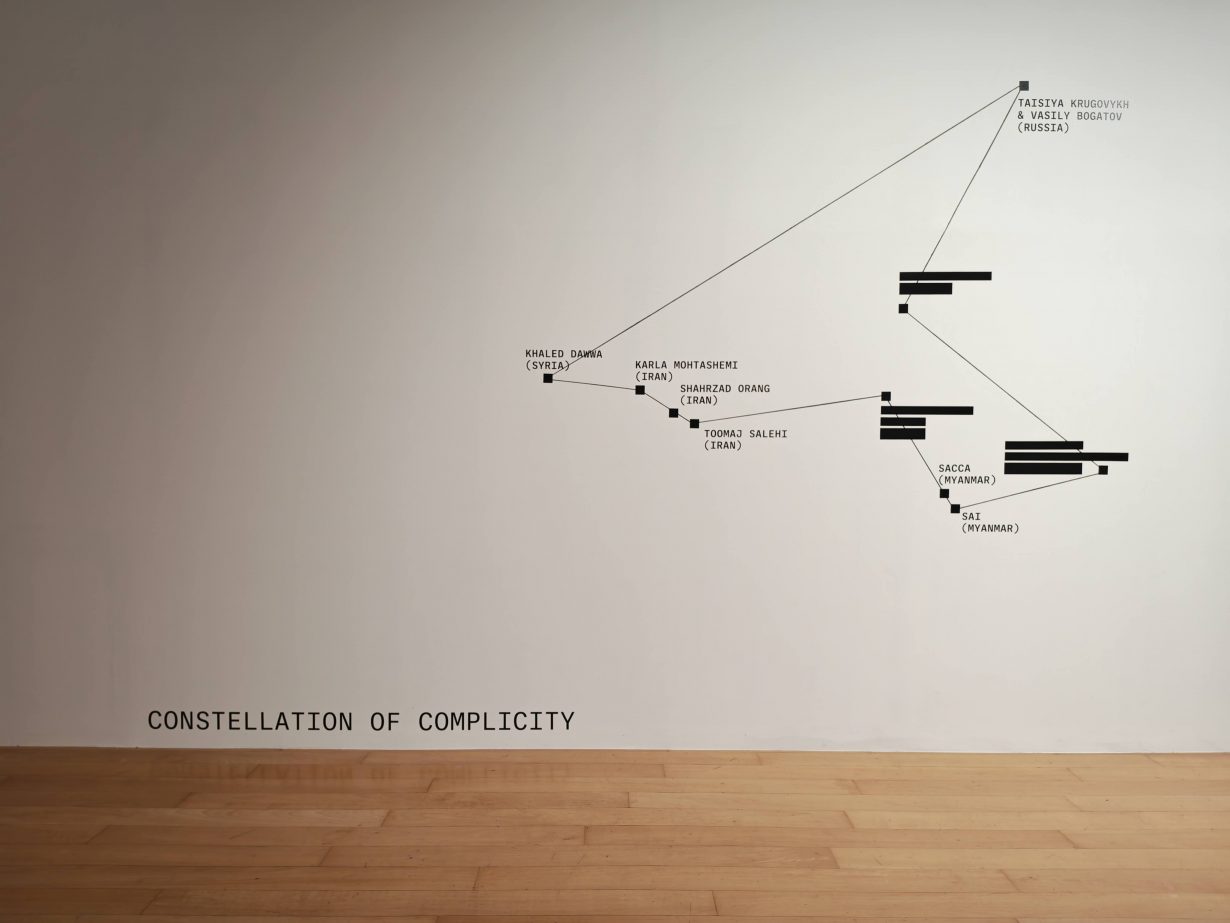
The Bangkok Art & Culture Centre (BACC) has removed and obscured several artworks and artists’ names from their current exhibition following a visit by Chinese embassy officials.
Curated by the Myanmar Peace Museum, the exhibition titled Constellation of Complicity: Visualising the Global Machinery of Authoritarian Solidarity aims to map global authoritarian networks, arguing that regimes such as that of China, Russia and Iran ‘collaborate, affirm one another, and reproduce forms of violence under the guise of sovereignty and order.’
Works by Hong Kong, Tibetan and Uyghur artists were among those ‘adjusted’.
‘It is tragically ironic that an exhibition on authoritarian cooperation has been censored under authoritarian pressure,’ said one of the exhibition’s co-curators, Sai, an artist from Myanmar. ‘Thailand has long been a refuge for dissidents. This is a chilling signal to all exiled artists and activists in the region.’
According to information provided by the Human Rights Foundation on 7 August and verified by ArtReview, representatives of the Bangkok Metropolitan Administration (the main funder of BACC) accompanied by Chinese embassy officials visited the exhibition on 27 July, three days after it opened, and flagged several works as ‘problematic’. Works by Hong Kong artists Clara Cheung and Gum Cheng Yee Man, Tibetan artist Tenzin Mingyur Paldron and Uyghur artist Mukaddas Mijit were removed or obscured and the names of the artists were blacked out.
On 30–31 July BACC was told by officials that the exhibition could only continue if they removed all of Paldron’s videoworks and any content featuring Chinese president Xi Jinping.
Upon visiting BACC on 6 August, the embassy representatives requested the removal of one additional flyer from Paldron’s installation and reminded the gallery to comply with the One China policy.
25 September: Sai, an artist from Myanmar and a curator of the exhibition, has has fled the country to the UK. The New York Times reports that Sai was warned in digital messages by the gallery’s directors ‘Thai police officers were inside, asking for his contact details’. Fearing arrest and deportation by the Thai police, Sai took the first available flight, leaving his belongings behind.